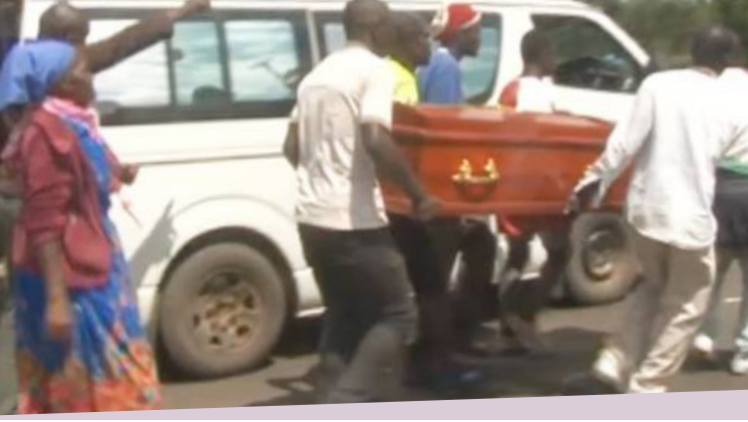In the small village of Kakamega in western Kenya, a 19-year-old girl’s corpse has refused to be buried due to unpaid dowry. The girl, whose name has not been released to the public, passed away from an unknown illness but her body has remained unburied for over a month due to her family’s inability to pay the dowry demanded by the girl’s in-laws.
In traditional Kenyan culture, a dowry is a payment made by the bride’s family to the groom’s family as a form of compensation for raising and educating the bride. The dowry is often made up of cattle, goats, and money, and is considered a symbol of the bride’s worth and value. However, in recent years, dowry demands have become excessive and unreasonable, with families often using the dowry as a means of extorting money from the bride’s family.
In this case, the girl’s family is unable to pay the dowry demanded by the girl’s in-laws and as a result, her corpse has remained unburied. This is a common practice in Kenyan villages where the corpse of a person who has not been properly buried is believed to bring bad luck and misfortune to the family and community.
This tragic situation highlights the need for a change in traditional cultural practices. Dowry demands have become a form of exploitation and should not be a barrier to a person’s proper burial. The government and community leaders need to work together to address this issue and ensure that all families are able to bury their loved ones with dignity and respect.
Furthermore, the government and community leaders should also work together to raise awareness on the negative consequences of unreasonable dowry demands and promote alternative forms of bride price such as gifting or contributions towards the couple’s future expenses, that do not oppress the bride’s family.
In conclusion, the unfortunate case of the 19-year-old Kakamega girl highlights the negative consequences of excessive dowry demands in traditional Kenyan culture. This tragic situation calls for a change in cultural practices and for the government and community leaders to work together to address this issue and ensure that all families are able to bury their loved ones with dignity and respect.



